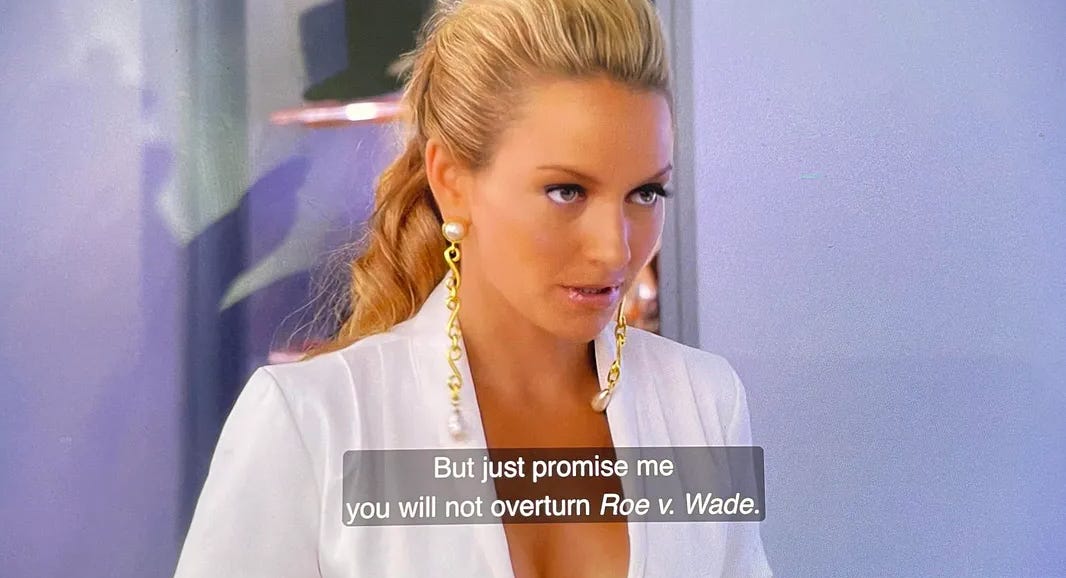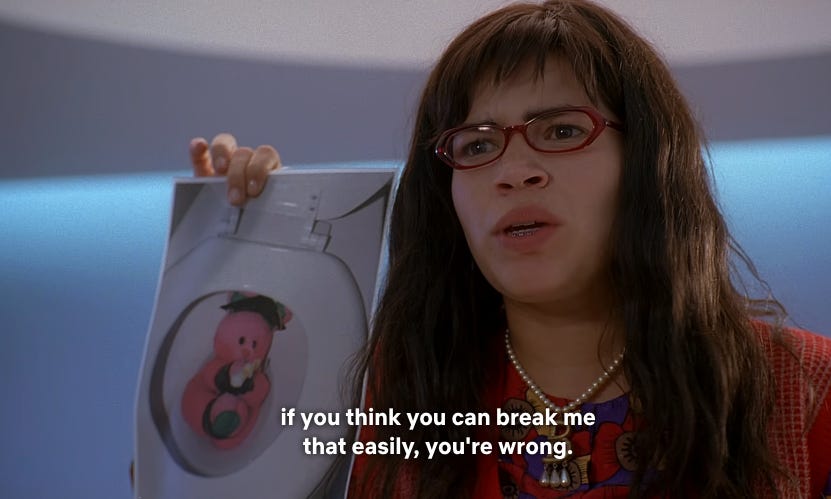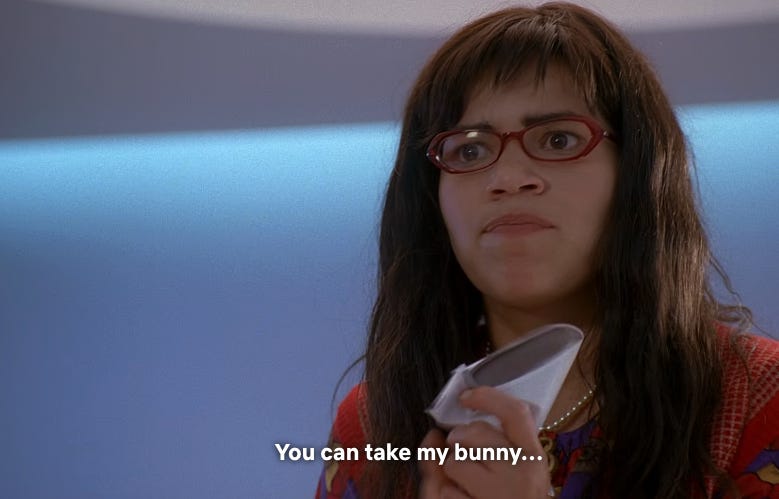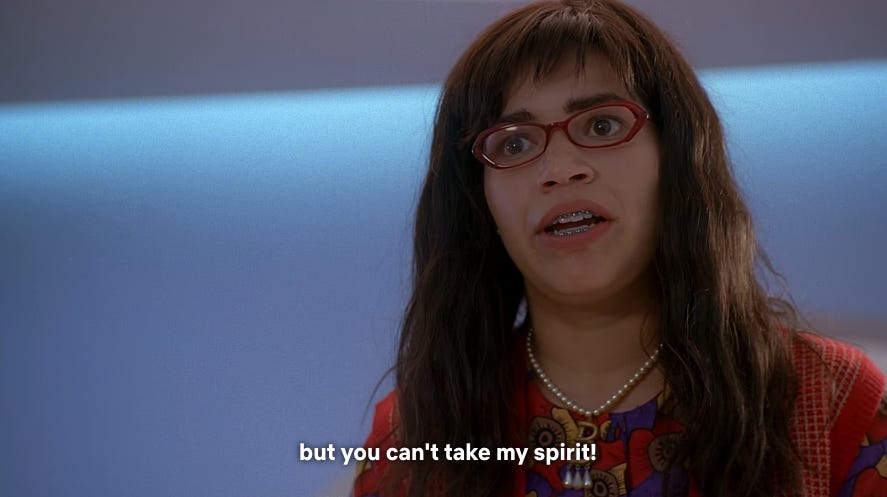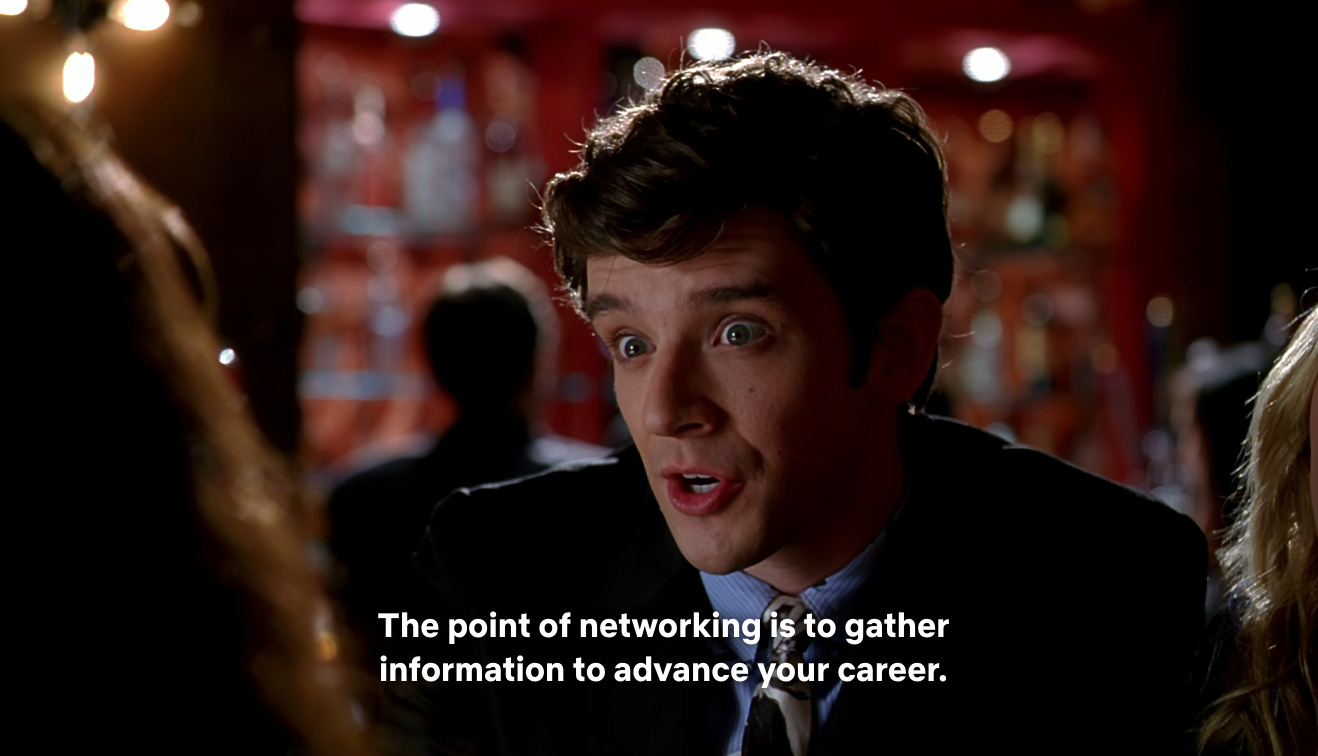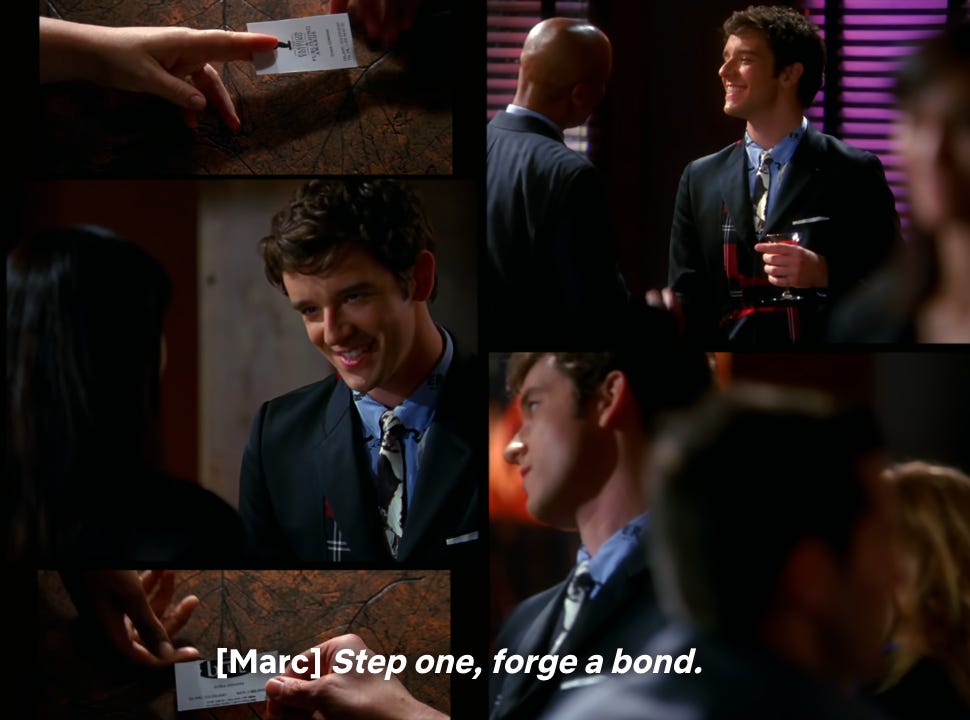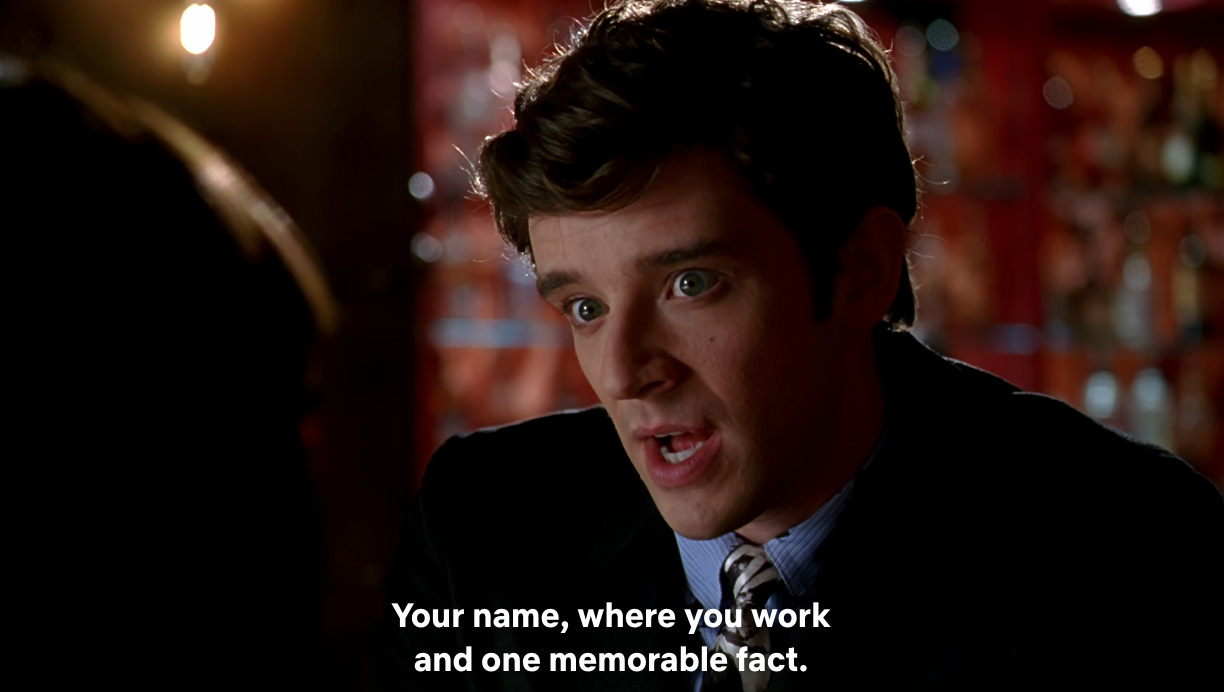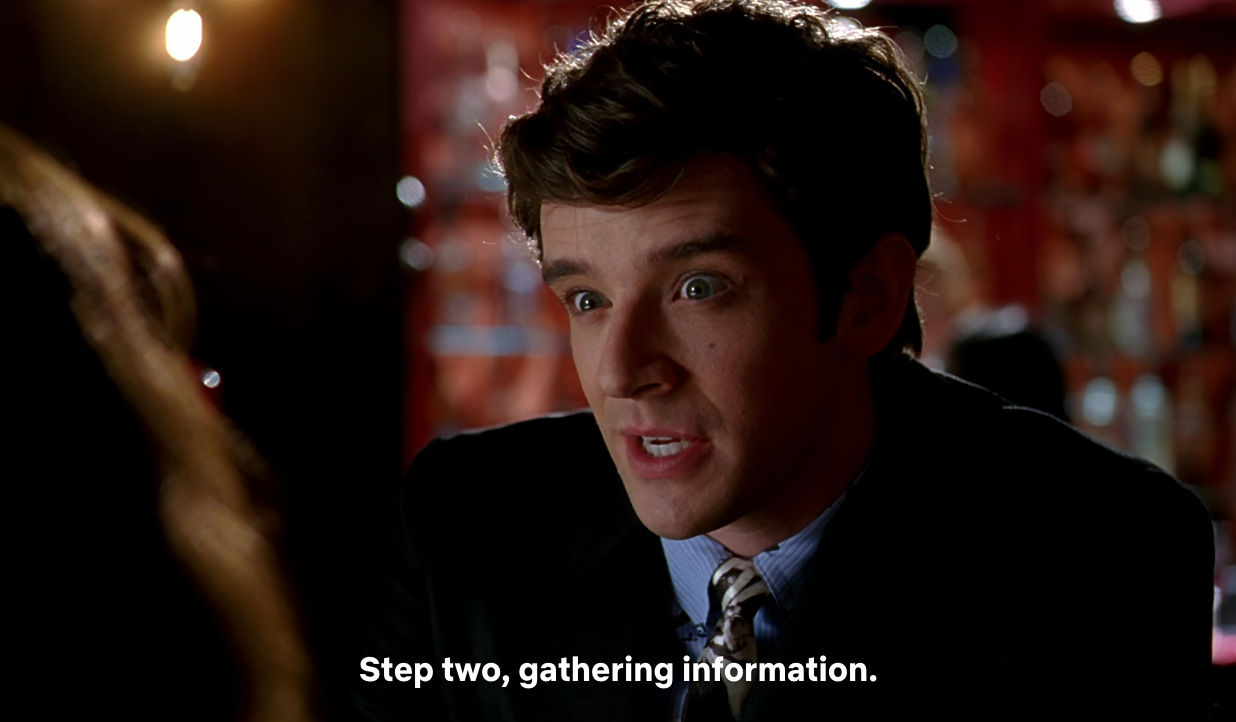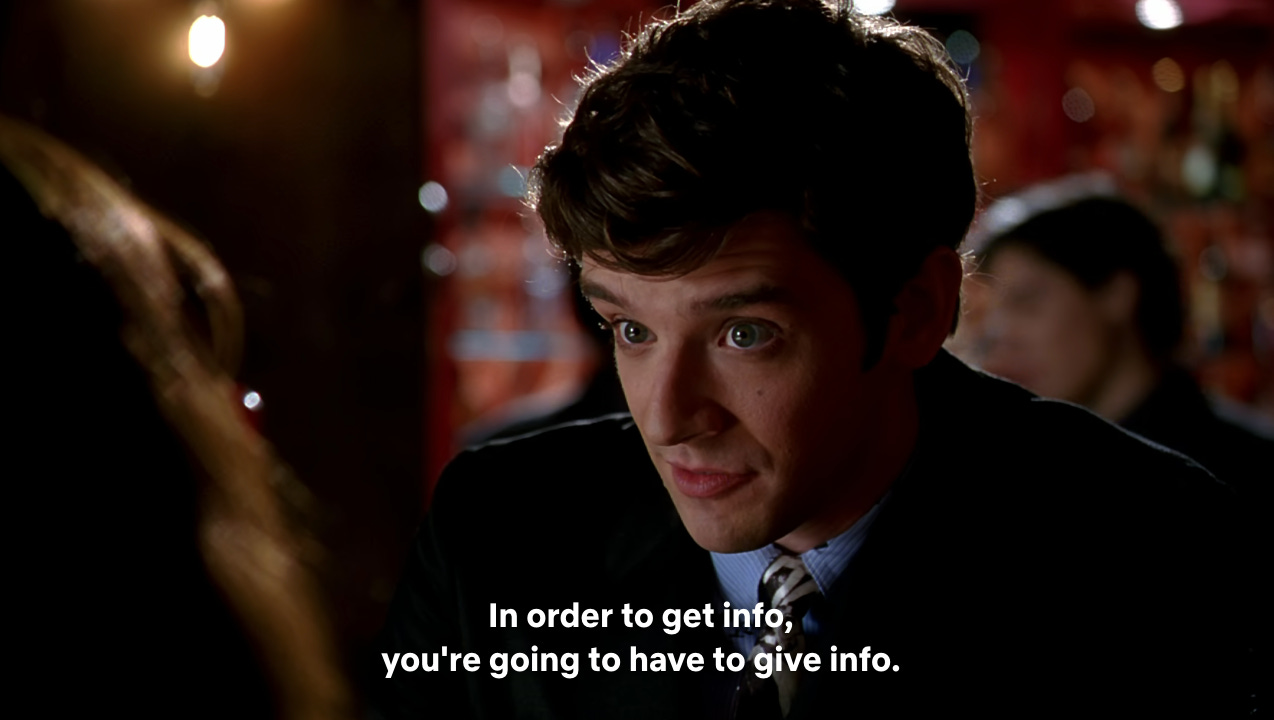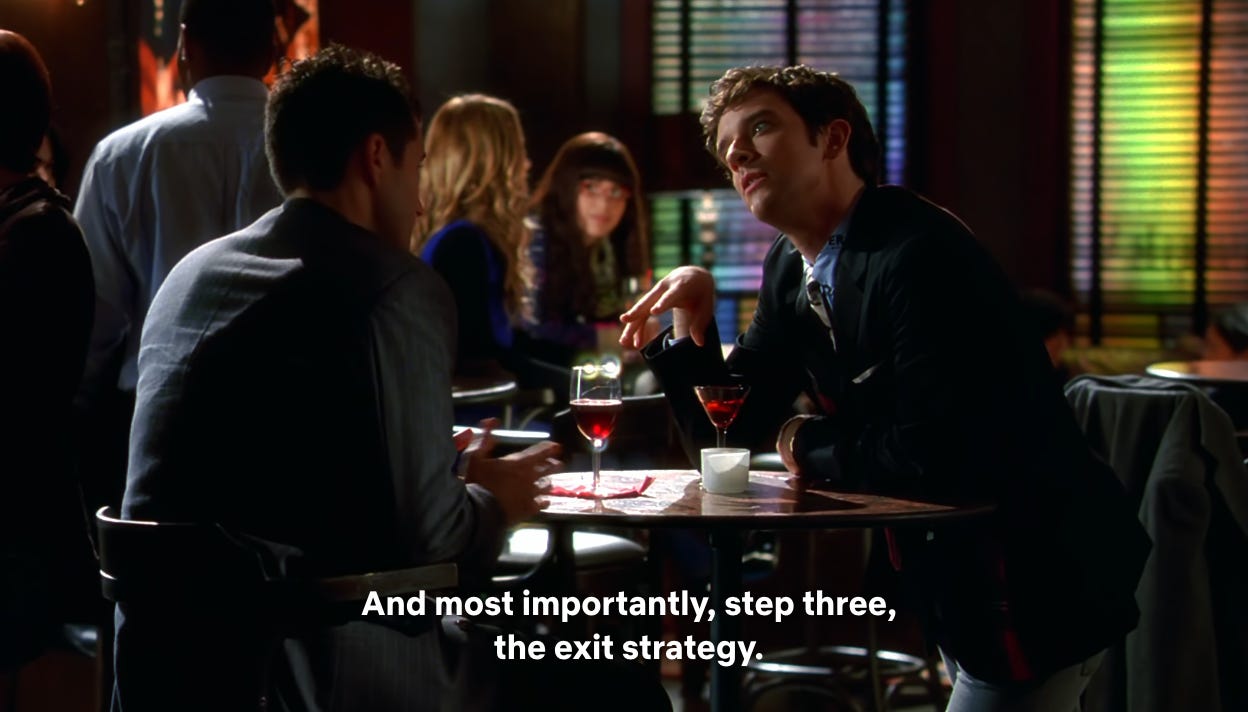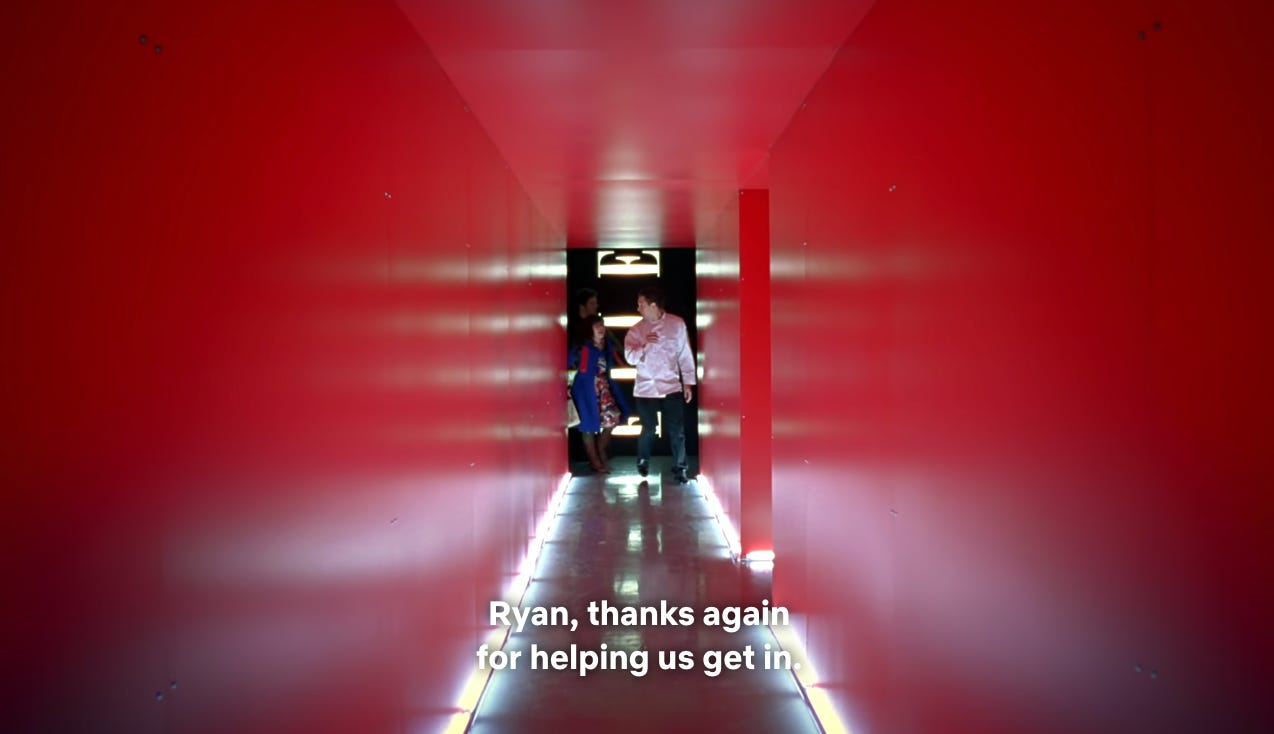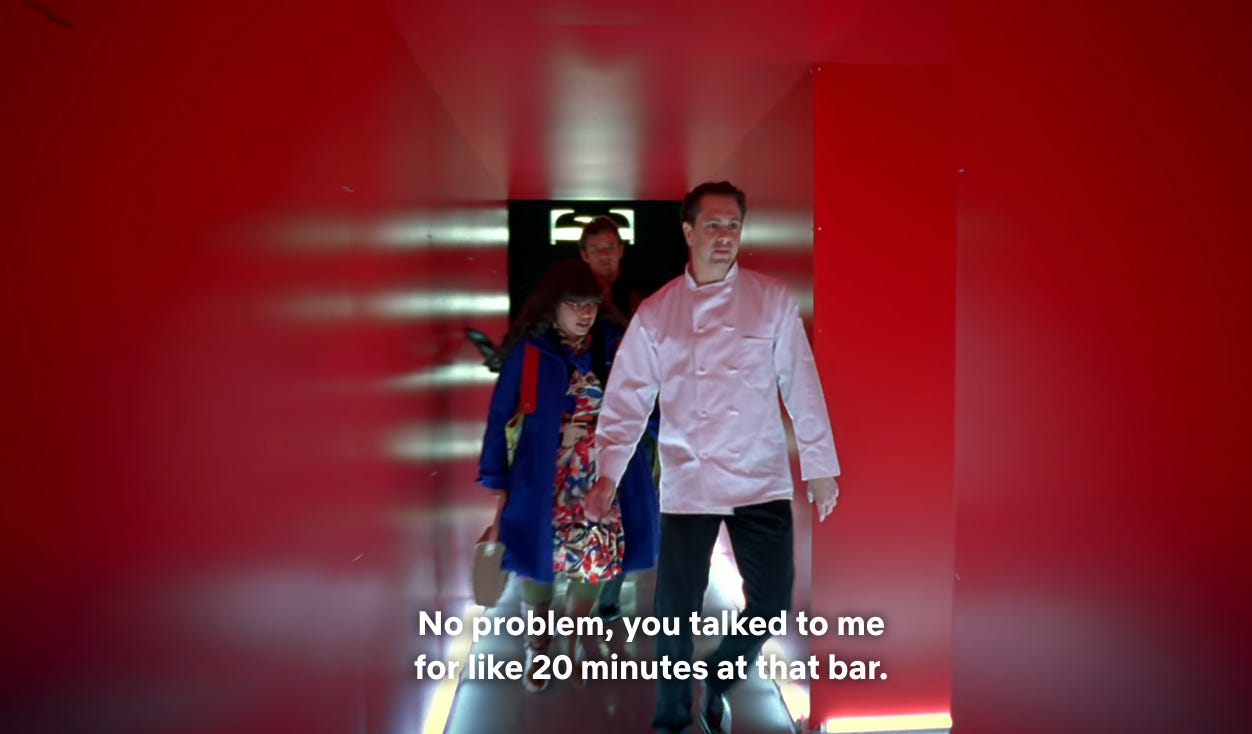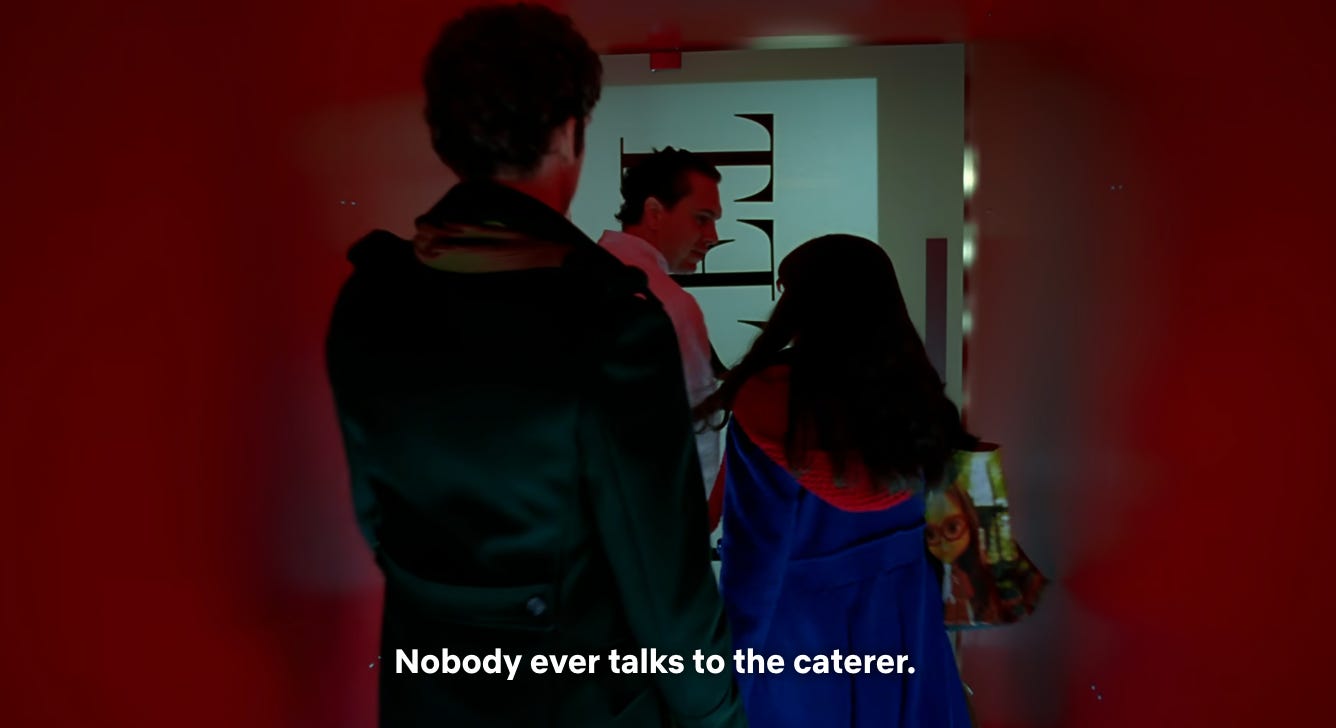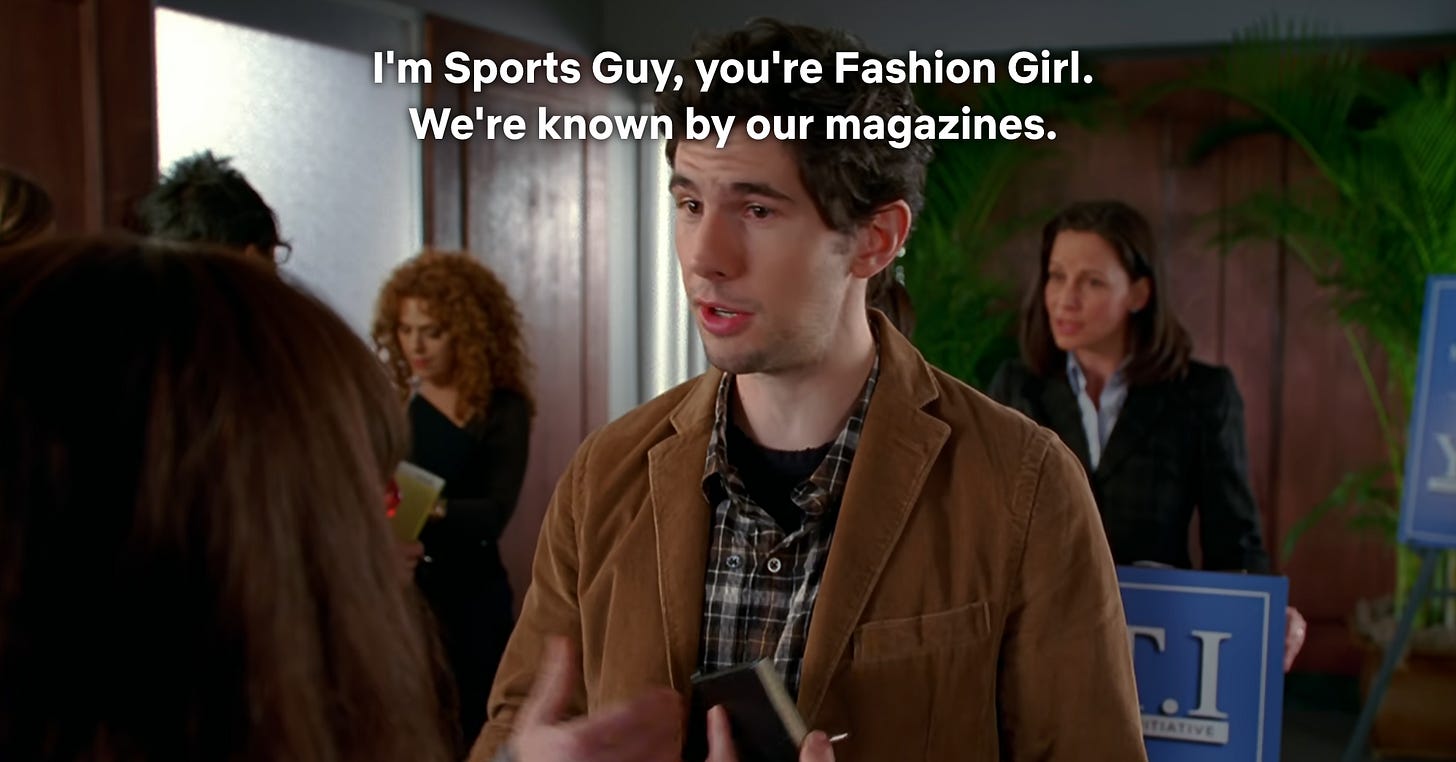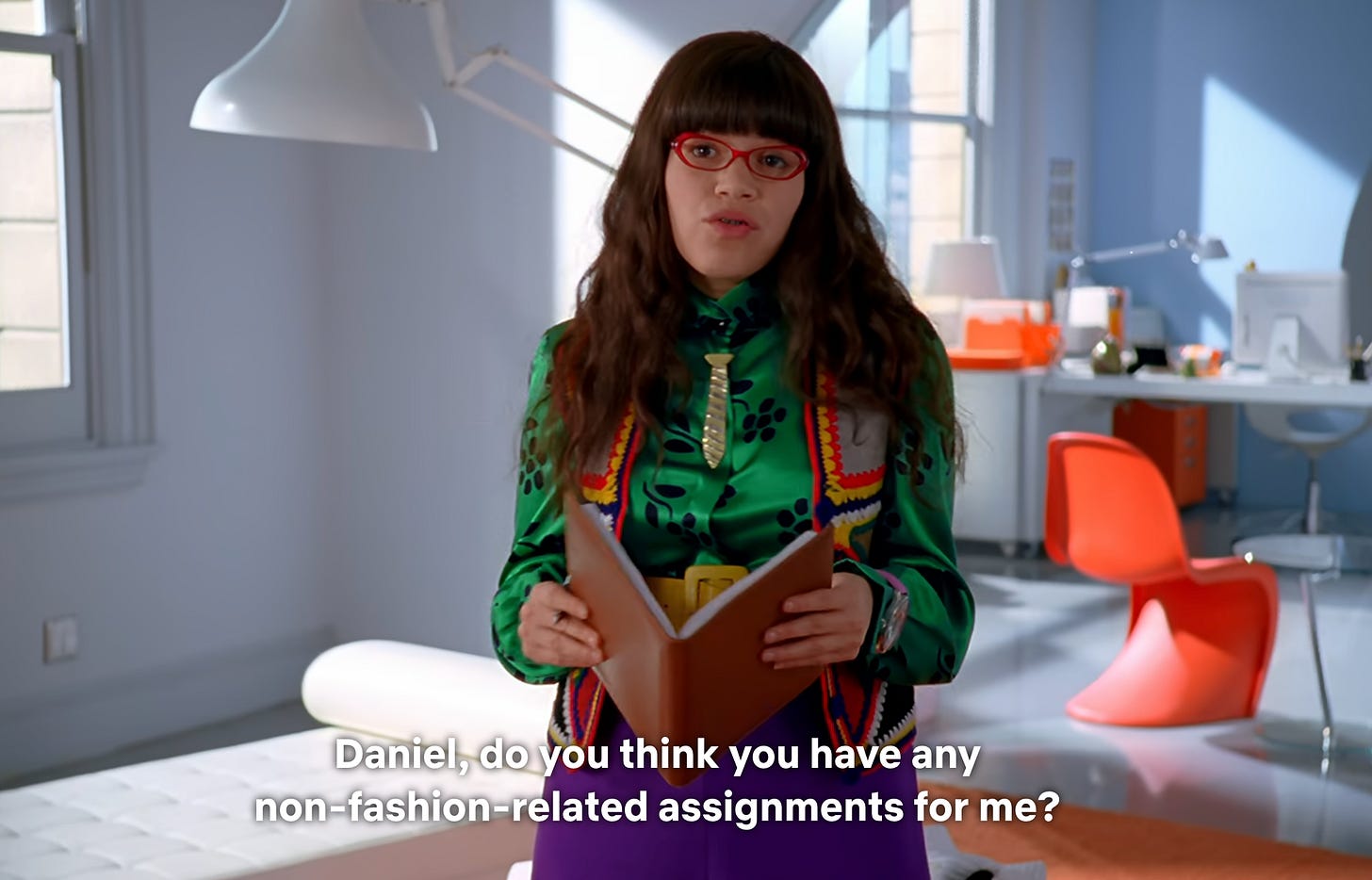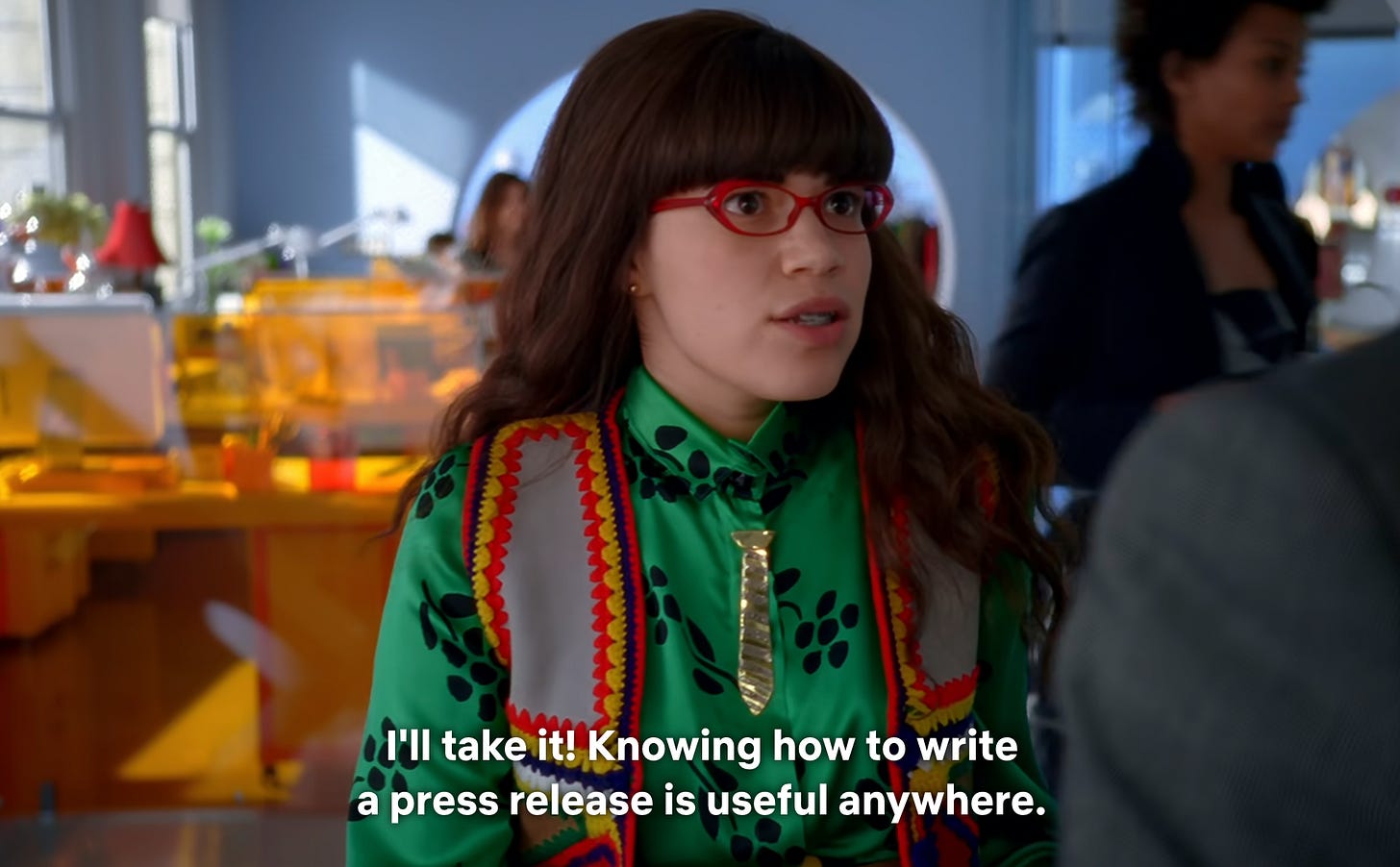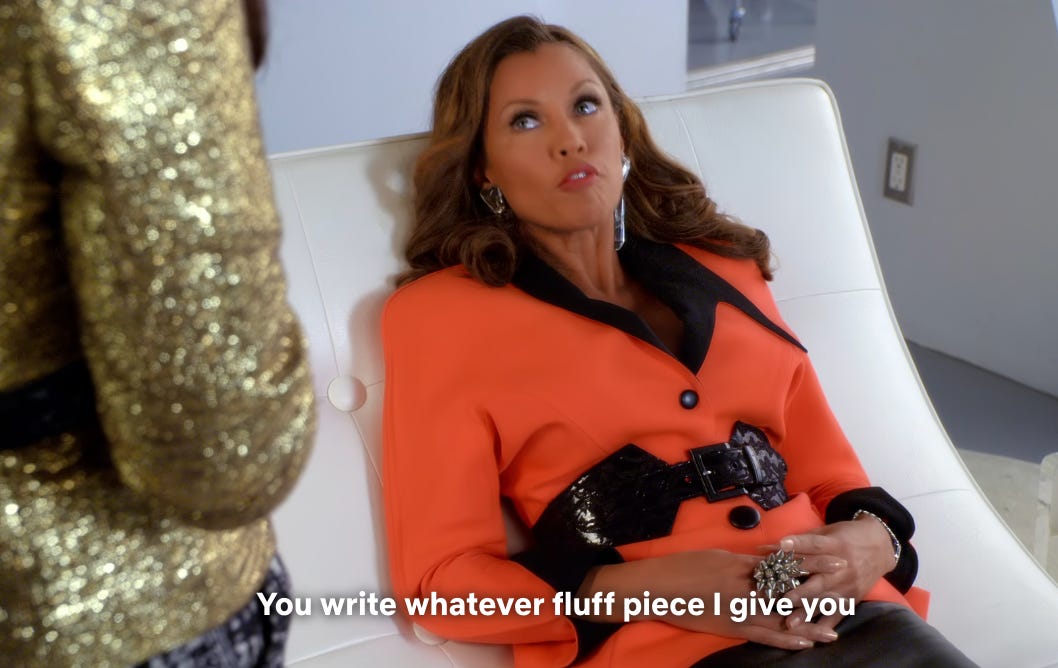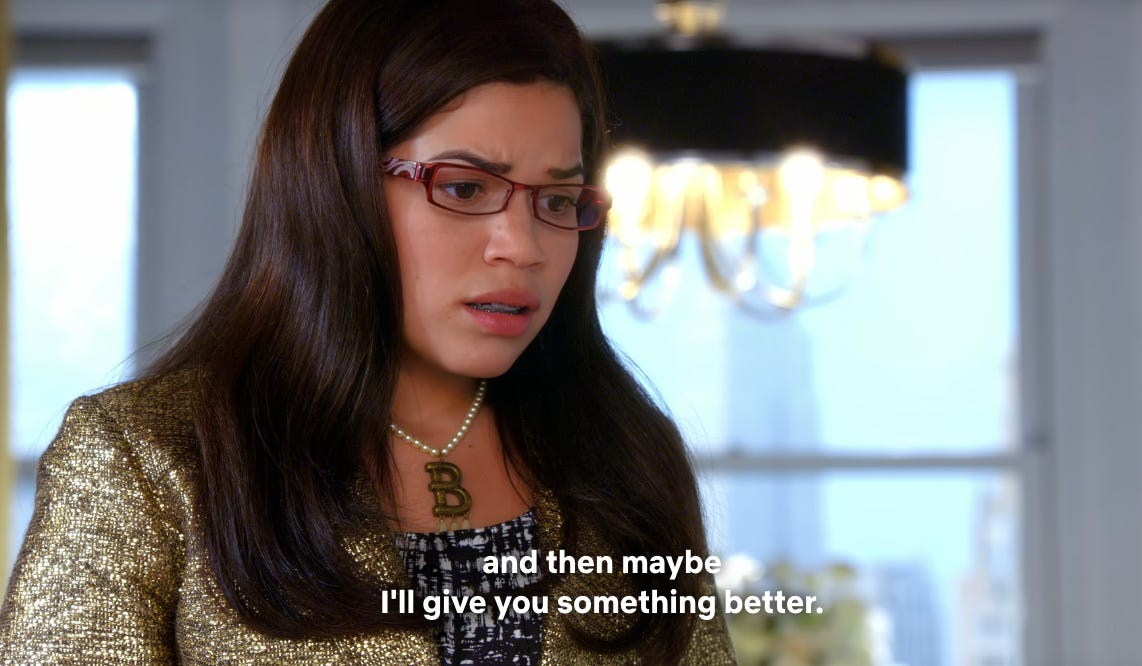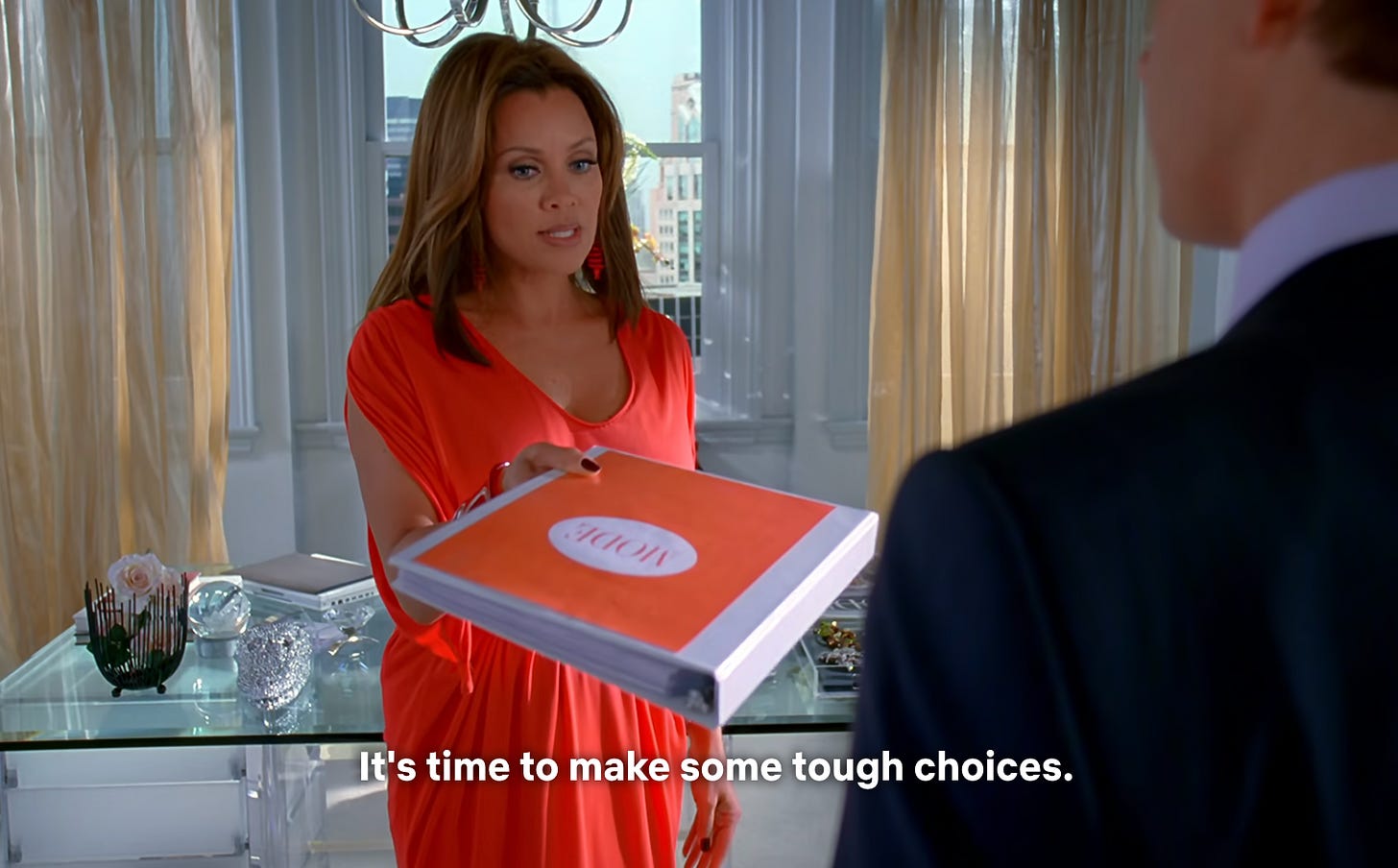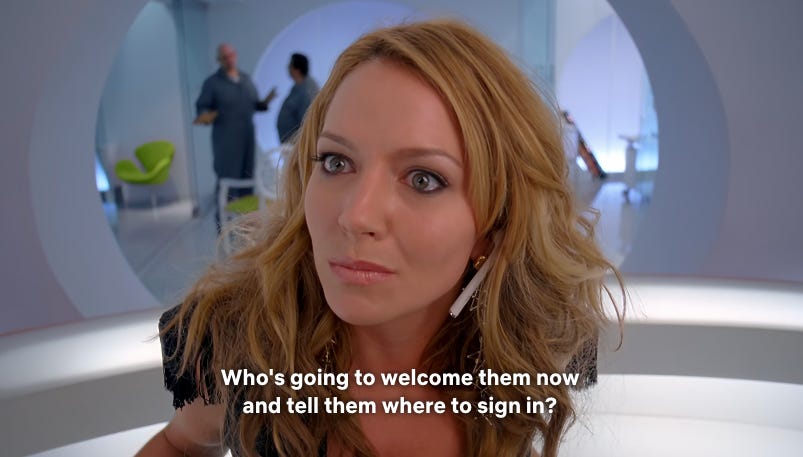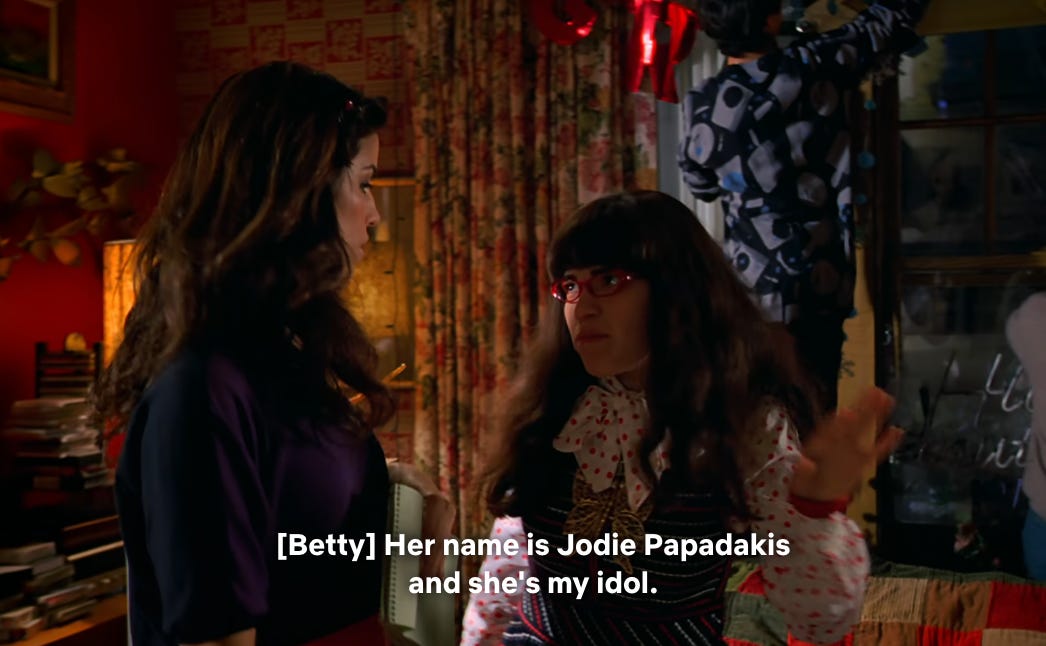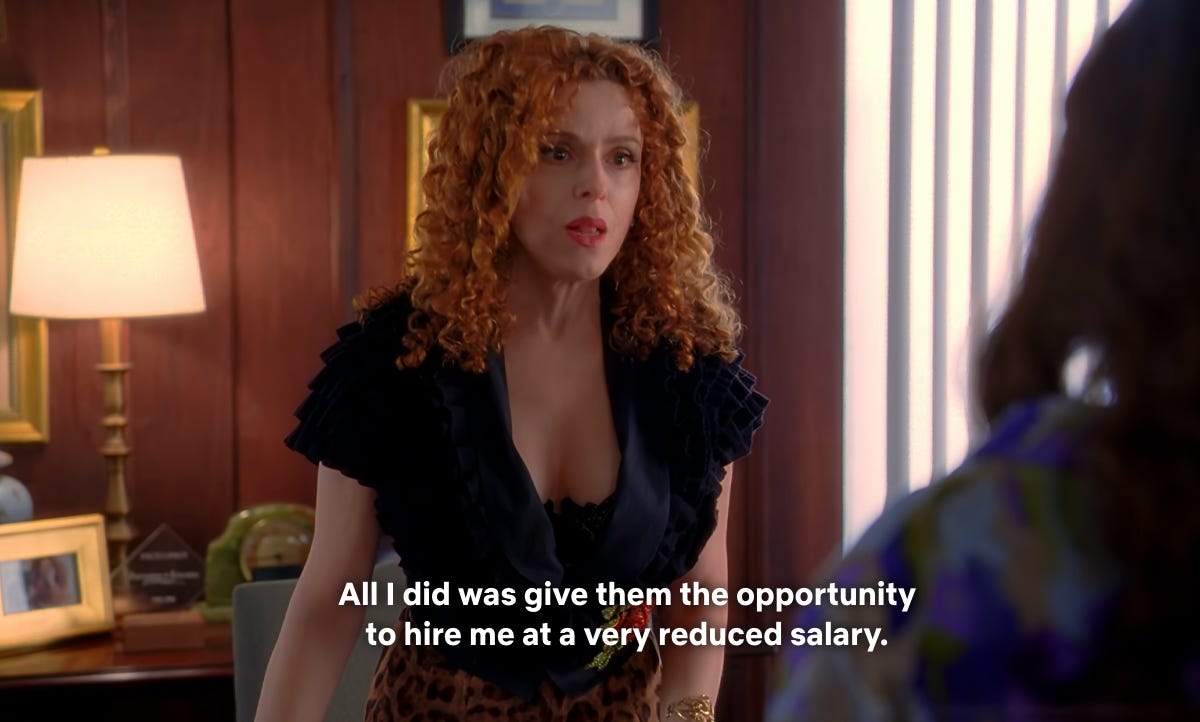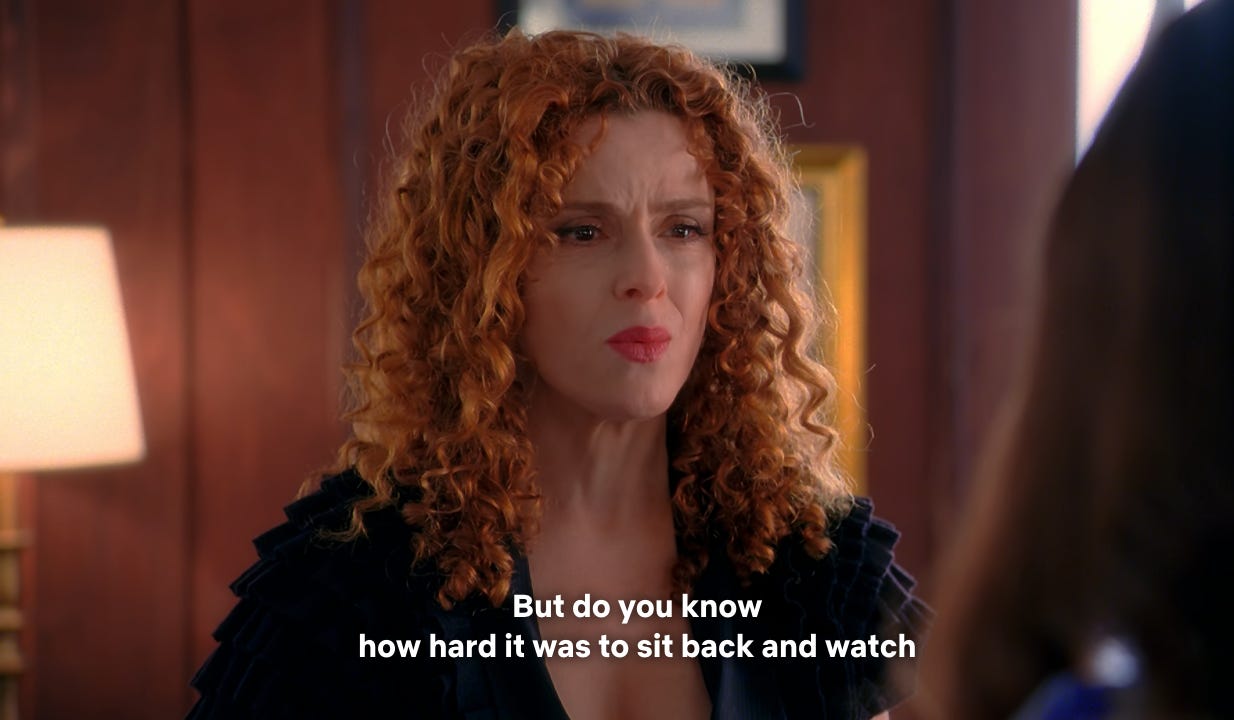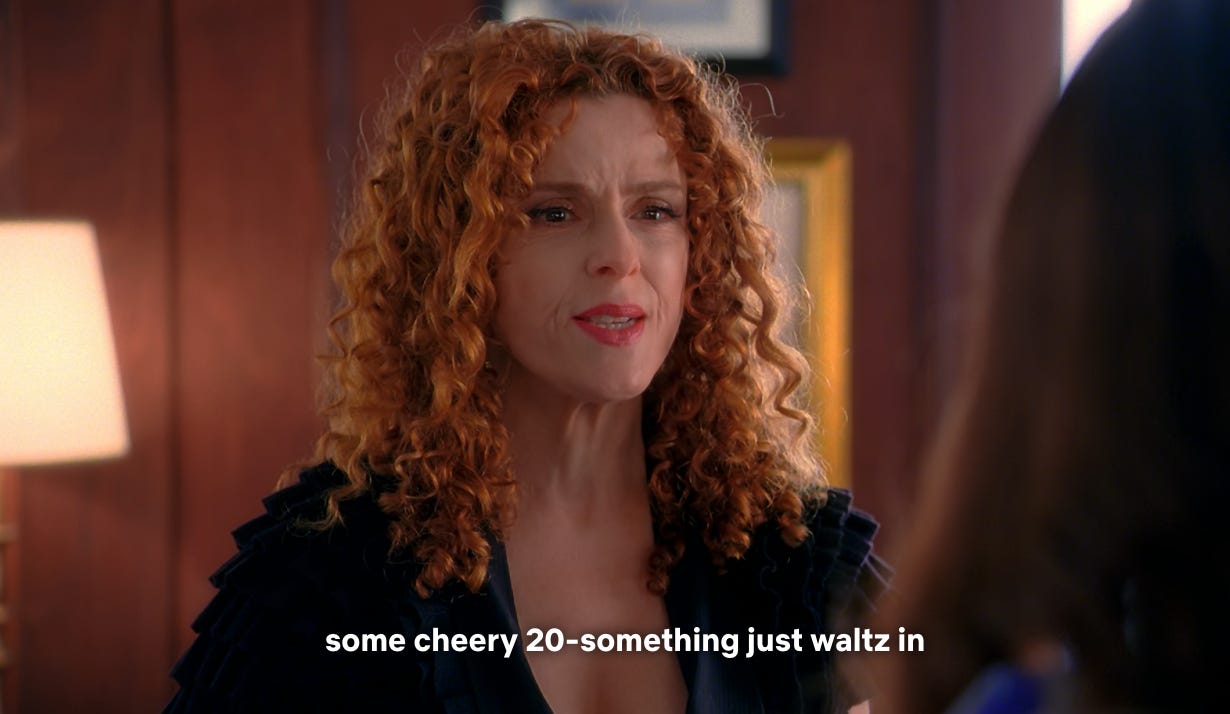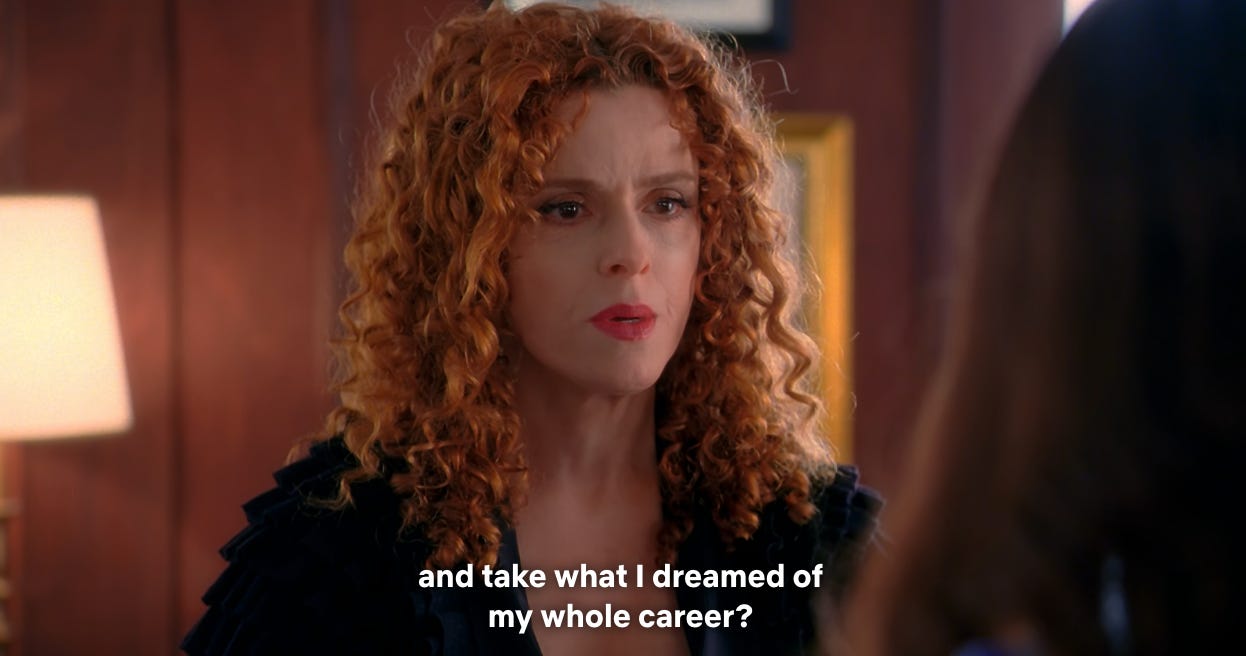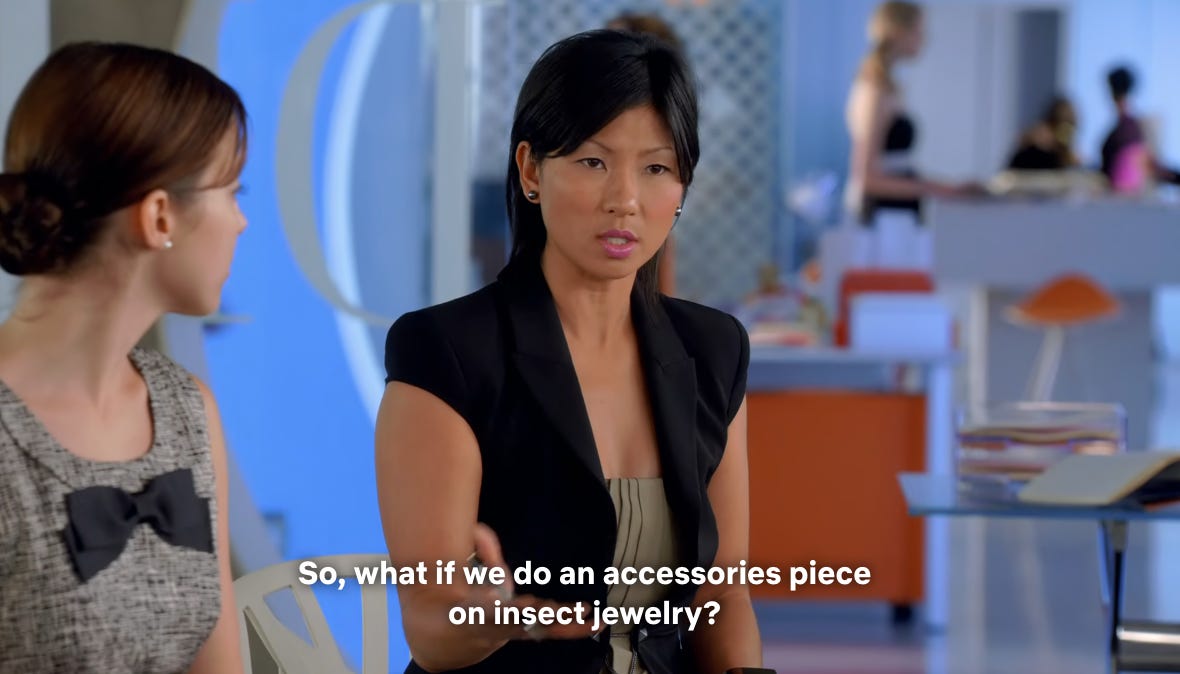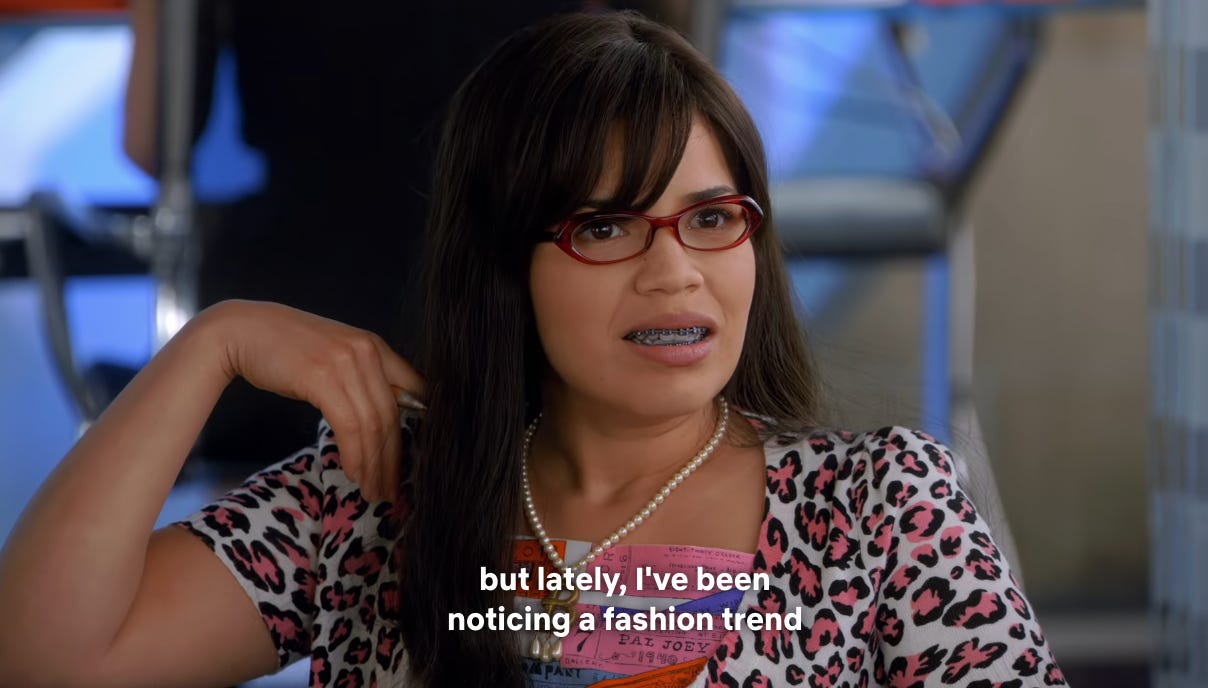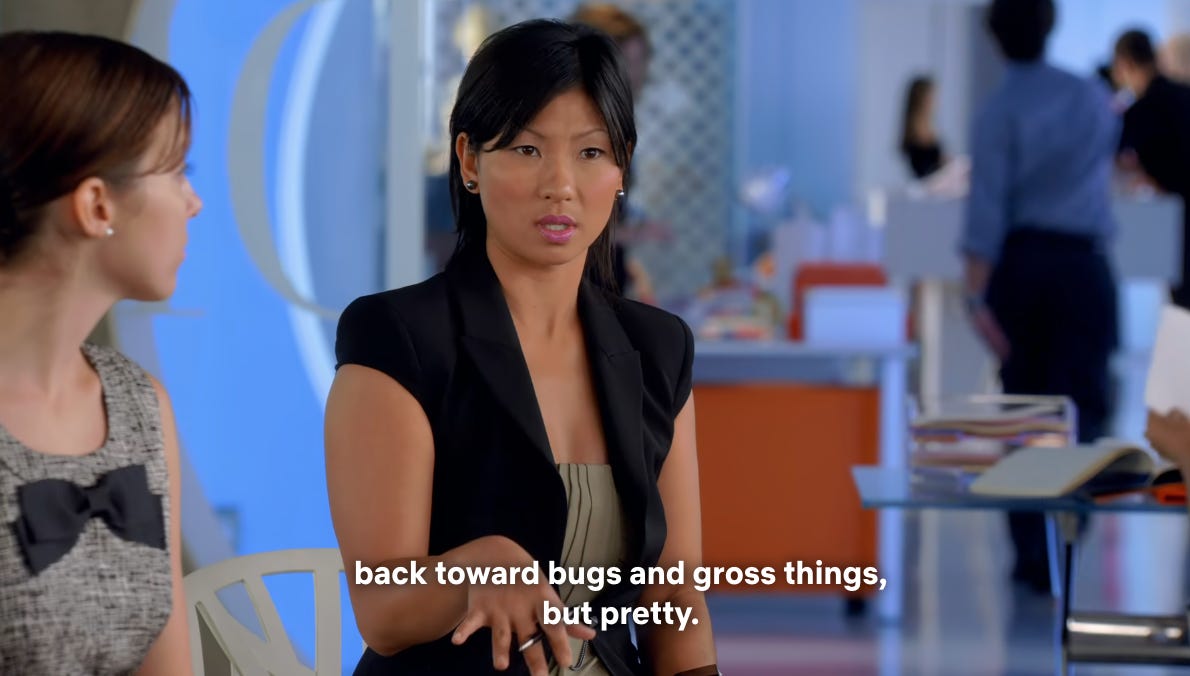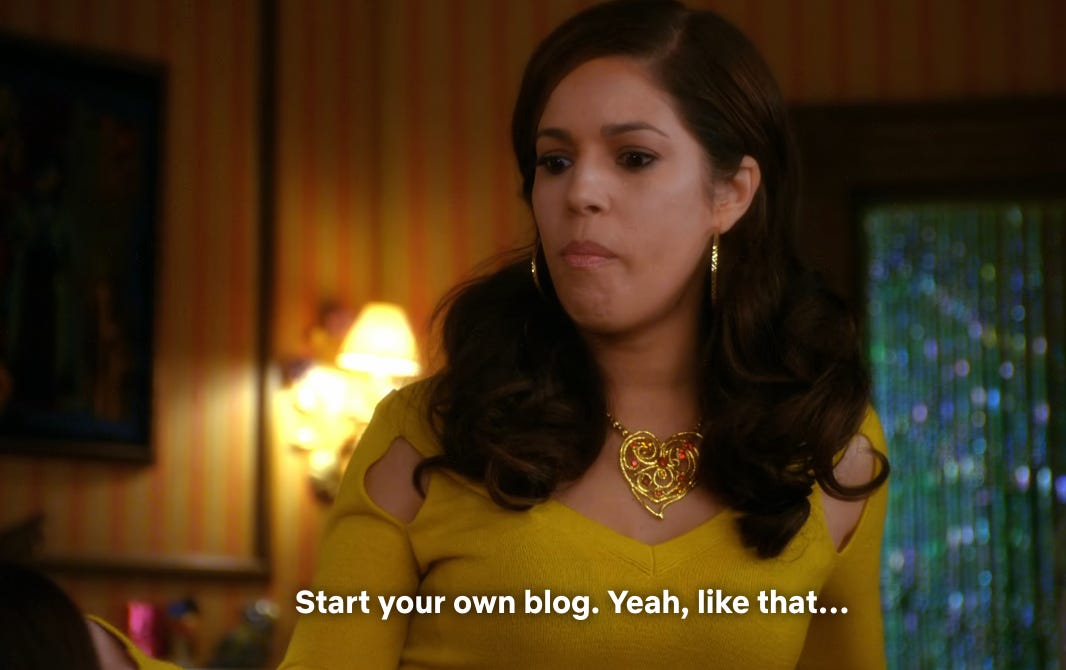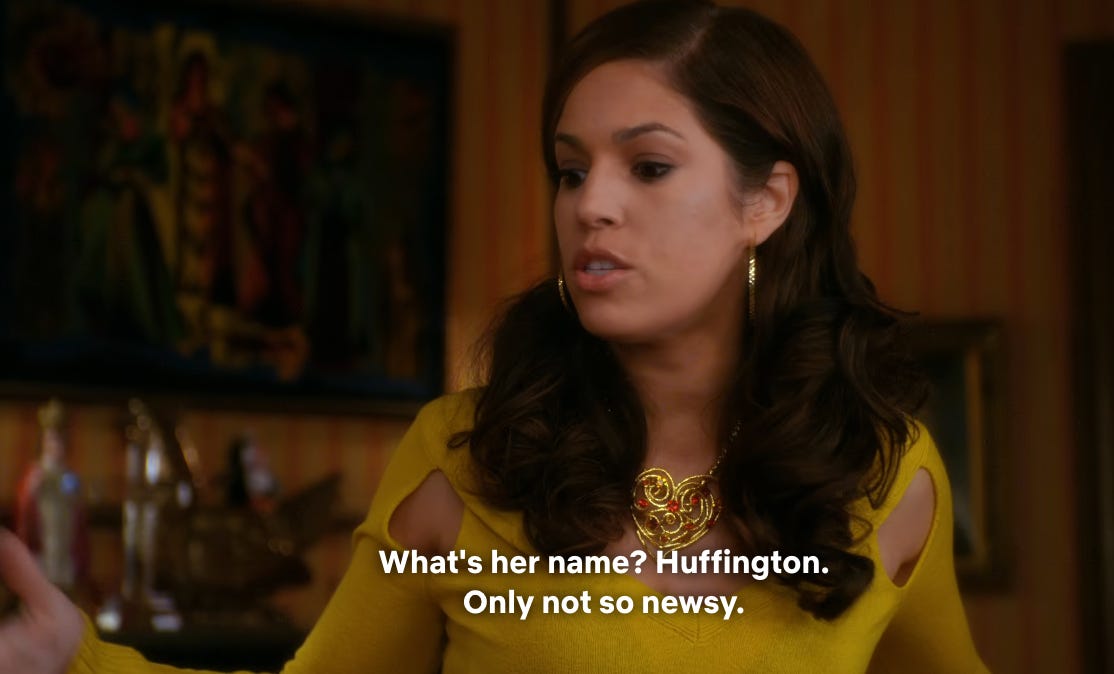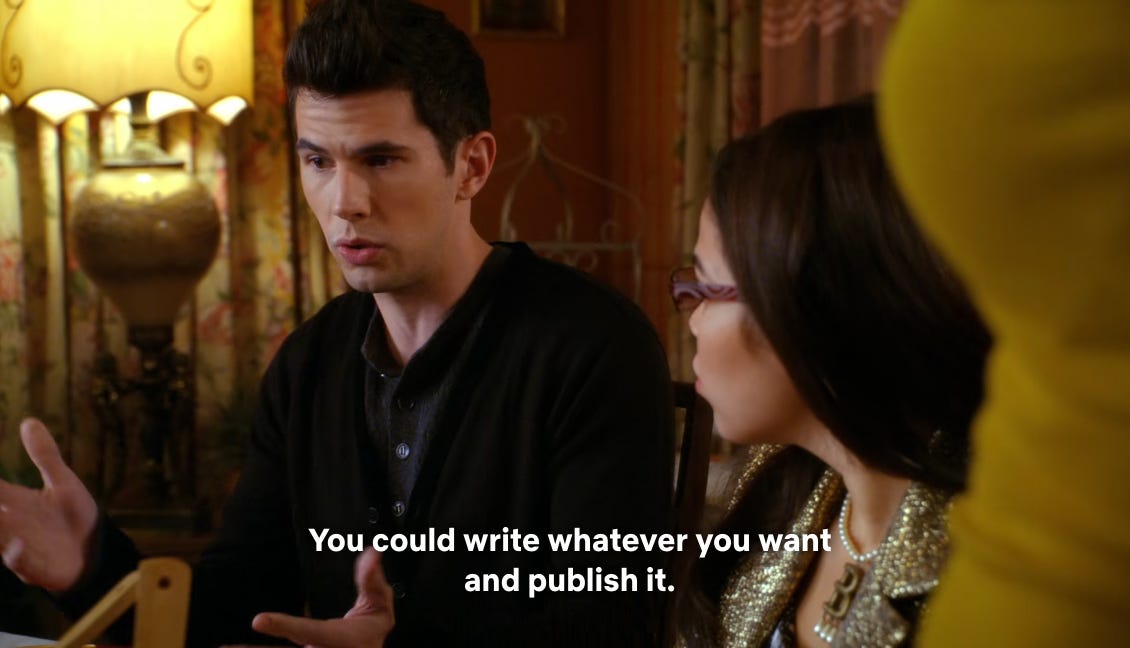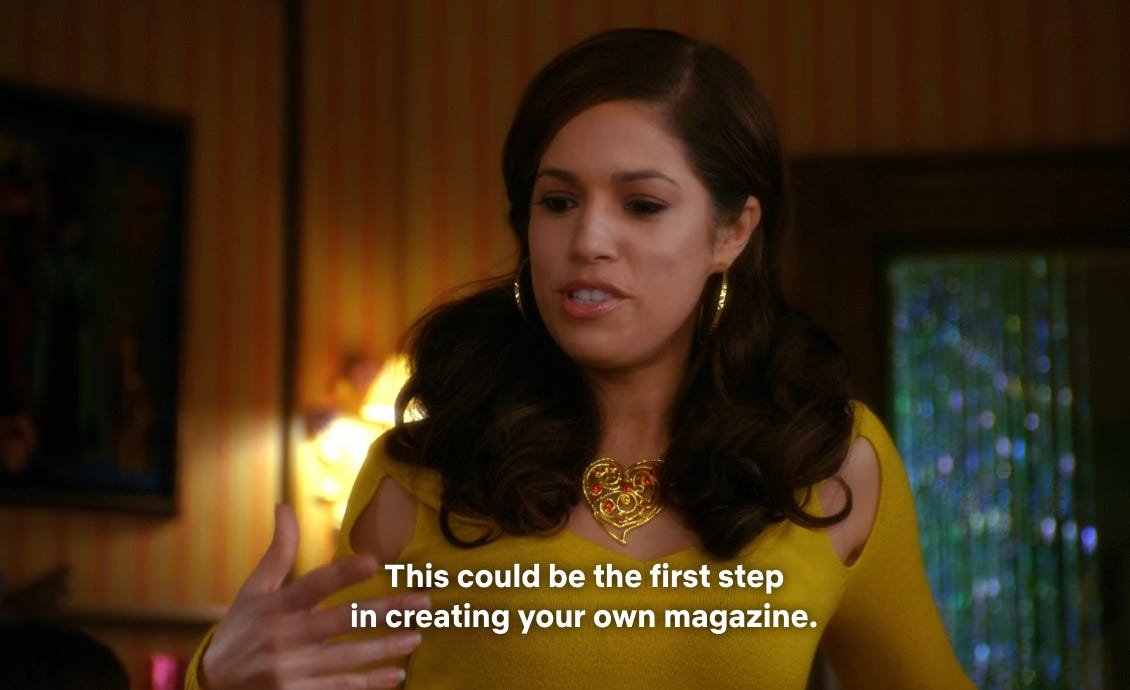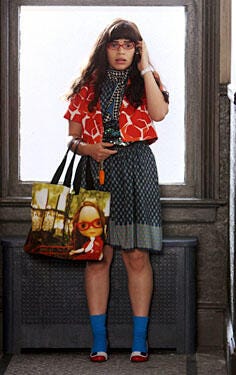Fashion
10 things ugly betty got right about working in fashion media
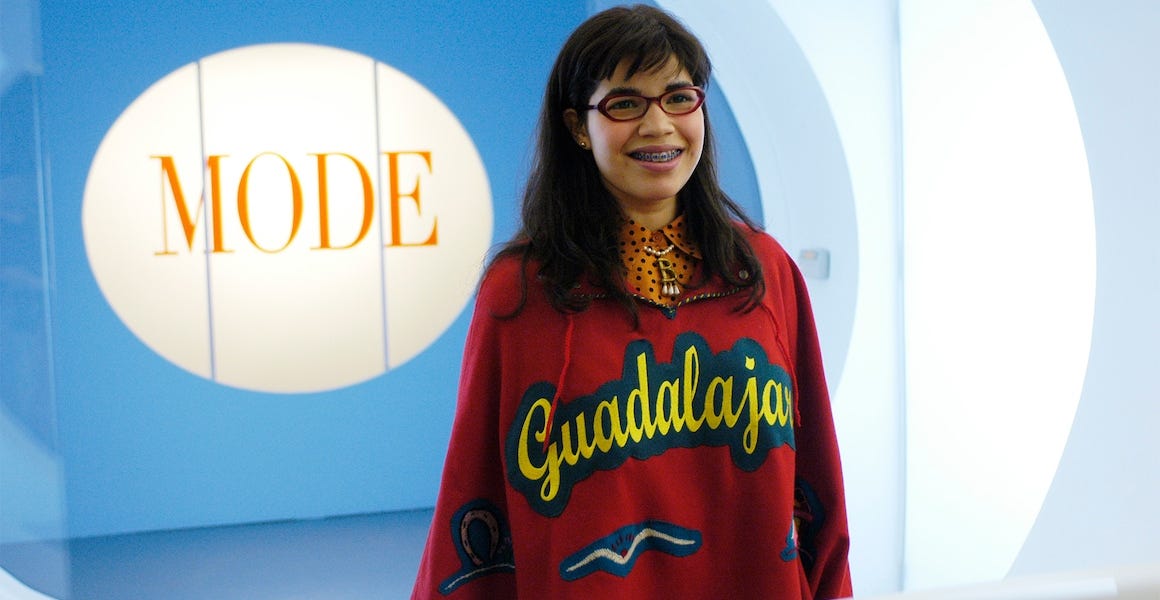
“I think you’re probably the first fashion writer that I’ve taken a keen interest in since the 2010-2012 Tumblr era.”—Elysha R., paid reader
If 2024 was all about the great Sex and The City revival, I hope 2025 is the year we collectively rediscover the cultural gem that is Ugly Betty. No offense to Carrie—but we’re long overdue for a canonical fashion writer girl who represents the reality of the industry, and Betty Suarez is that girl.
From the start of the pilot episode, I was rooting for Betty. She is optimistic, earnest, hardworking, and incredibly relatable. If Carrie has the unattainable fantasy life we dream of (making $4.50/word for Vogue WTFFFFF?), Betty is the girl most of us can *actually* see ourselves in. She is Latina, comes from a working class background, lives in an intergenerational household, and has dreams of becoming a magazine writer.
Her story starts when she lands a job at Meade Publications as the assistant to the editor-in-chief at MODE, a major fashion magazine. It’s hard to get a foot in the door of an industry run by wealthy white people and nepo babies, so this is a big deal for her.
So, the show is far from perfect. There are countless problematic moments that range from cringey to outright cruel. The MODE bitches incessantly mock Betty’s appearance, body, and “lack” of fashion sense. The 2000s “thin is in”/diet culture comments are just so eye roll deep sigh (and I understand why you would pass on the show because of this).
However, I think the new guard of Ugly Betty fans recognize that her character was unfairly bullied and she was *always* a stylish, inspiring, badass icon. Justice for Betty Suarez.
My favorite thing about the show is its detailed portrayal of the fashion media industry in the early aughts (the show ran from 2006-2010). The world-building of the MODE office is done spectacularly, I can picture what it would be like to work there: check in with Amanda at reception, walk down the mod space age-esque hallways, pull a Marc Jacobs dress from the Closet, get roasted alive by Wilhelmina at the pitch meeting…
Ugly Betty nailed the media climate of its time: the financial struggles, the shift from print to digital, the perks drying up, and the once-glamorous “editor” role losing its allure.
The show had a finger on the pulse of where our culture was headed, and remains relevant today.
Obviously, this post contains mega spoilers.
From Day 1 at MODE, Betty is relentlessly hazed and bullied. It’s hard to watch at times. Like when they start a blog where they post Betty’s daily outfits to laugh at. It breaks my heart tbh :/
Throughout the series, her colleagues do experience some character growth that leads to glimmers of friendship.Her boss Daniel probably gets the most character development into a “good guy” who truly cares about her, but Amanda and Mark are frenemy types always revert back to their horrid Tweedledee and Tweedledum ways.
She’s surrounded by a lot of morally gray characters and gets confronted with ethical dilemmas herself, as she rises up in the ranks of MODE.
Throughout this, Betty stays true to herself. She does not stop dressing in her brightly colored tights, printed blouses, and red glasses. She wears her “B” necklace even though it doesn’t go with everything she wears because it’s from her mother and has personal sentimental value. And when given the option to play dirty to advance her own career, she does the hard—but right—thing.
I wrote about the effects of peer pressure and parasocial envy from working in proximity to the fashion industry here:
The more I grew connected to fashion brands, designers, and media publications through my work, the louder that voice of compulsory desire of “being at fashion week” became.
You will run into situations that test your code of values. Listen to your intuition when you feel like something isn’t right, or if someone’s conduct makes you uncomfortable (the fashion industry is a massive HR handbook violation).
It sounds so simple, but don’t lose yourself to try and fit in with the cool girls, the glossy editors, the rooms that make you feel unwelcome.
There is always a kinder table to sit at. If you can’t find it, build it.
Betty’s first test in the Young Editors Training Initiative (YETI) program is to get 40 contacts. A good journalist must have sources, after all! Stressed over how to network, Betty turns to fellow assistant Mark for advice. Mark has a dog-eat-dog worldview and explains his transactional approach to networking.
(Today, we’d call Mark a clout chaser).
Mark is the type to use people for his own personal gain. But worse than Mark are the ones who pretend to be your friend just to let your guard down before they use you. (Betty learns this the hard way when an ELLE employee she trusted turns out to be an opp who steals a cover shoot dress from MODE).
There are a LOT of people like this across all industries, not just in fashion or media. You know, no intro or even a “hi how are you”—just straight to asking for something and will stop interacting with you after they get it.
So how do you network without being a clout chasing troll? In my experience, basic respect and a little consideration go a long way. Back in the 2000s, networking was about getting someone’s email or phone number. Now, thanks to Instagram and social media, everyone is reachable—it’s just about how you approach. Send the DM or email, introduce yourself, and most importantly, be genuine.
So many networking lessons in Ugly Betty!
She spends 20 minutes talking to a caterer named Ryan at a mixer, and it pays off when she needs someone to sneak her into the ELLE offices. The moral of the story is to never discount someone based on your perception of their importance in an hierarchal workplace.
When I am writing a story, the sources who are overlooked by society often have the most interesting perspectives and anecdotes. This is because power-hungry people write you off when they think you’re beneath them, and open their big mouths or misbehave. So the ‘caterer’ is the holder of many secrets. In my old job, I would interview people from all walks of life and shadow them at work: social workers, plumbers, steelworkers, doctors, executives, attorneys, etc.
The social workers and plumbers were always the best to interview.
Betty initially meets Matt (a future bf) through a YETI assignment where they have to shadow a peer who works in an entirely different subject area. At first she is dismissive about sports and doesn’t think she can learn anything from him. It’s a little cliche, but she realizes that any topic can be interesting if you find a personal connection to it.
I intentionally seek out non-fashion content in my media diet;
recently wrote a piece about breaking the fashion Substack algorithm that I loved. You just learn so much by reading about topics outside of fashion, AND you actually end up having more interdisciplinary ideas to write about. The intersection of fashion and X is where I’m happiest as a writer.
If you are a Sports Guy reading this, maybe we can swap notes on our respective beats…
Betty goes through a minor crisis when she realizes she’s “on track” to become a fashion editor, but her actual dream is to be at The New York Review (a fictionalized New Yorker of sorts). She’s interested in international politics and humanitarian efforts, and decides she needs to develop some non-fashion specific skills. Why not start with drafting a press release?
Though I love what I’m doing now for work, I keep an open mind about where life might take me. Writing (and communication more generally) has been the most valuable transferrable skill in my career thus far.
It’s not just press releases—writing litigation briefs and papsmear awareness campaigns 100% prepared me to write stories about Japanese vintage sellers on American road trips.
And I expect that writing about vintage sellers will prepare me for whatever it is I will be doing 10 years from now!
This one is pretty self-explanatory.
If you’re writing for a publication (whether as a freelancer or full-time staff), expect to write a lot of fluffy SEO stories about Taylor Swift’s handbag or whatever before you are entrusted with higher-stakes stories.
Due to con man Connor, MODE ends up in deep financial trouble. Daniel and Wilhelmina do everything they can to save the magazine, but are left with no choice but to fire people.
Everyone I know who has worked at magazines/publishing for a good chunk of their career has been laid off at least once. It got especially bad after the peak Covid years, which contributed to the explosion of editors and writers turning to Substack as a professional lifeline.
I was once laid off from a part-time job for a lifestyle media brand due to budget cuts. I was kind of relieved when it happened because for the two weeks leading up to it, I had a feeling that I might be getting cut, and the anticipation gave me so much anxiety.
If you’re able to, take time to process the shock and figure out what you’ll do next. My thought process was: well, if writing is going to be unstable anyways, I might as well put all my chips into myself and go freelance.
Through the YETI program, Betty gets mentored by Jodie Papadakis—her publishing world idol.
However, when Betty finally gets an offer for her dream job as an editor for the New York Review, Jodie pulls a Game of Thrones move and steals the job for herself. Ruthless!!!!!
To me, this scene shows that despite being a well-respected editor, Jodie is not immune to the scarcity mindset that plagues the financially struggling media industry.
The lesson here for Betty is to never worship her role models. They’re people too, and people will do bad things out of desperation.
It’s easy to look at a seemingly accomplished writer with several published books and a vanity column in Vogue and think they’re thriving in their career.
But the truth is, you truly never know that’s going on. Like Jodie, are they lowkey resentful of a cherry 20-something TikToker waltzing in to “take their job”?
Find mentors. But don’t put them on a pedestal.
When Betty joins her first pitch meeting as a newly promoted associate editor, she is called on to offer an idea. She’s in the hot seat and not fully prepared, so she throws out the first topic that pops into her head: mosquito-borne disease in sub-Saharan Africa. It’s a start—she tries to draw a connection to African fashion but Meegan (another junior features editor) jumps in with the trend angle that gets approved on the spot.
If this was representative of trend-driven journalism in the early aughts, multiply it by 100 and that’s the reality we’re operating in today.
wrote about this “trend journalism” phenomenon, explaining why every headline seems to refer to niche internet jokes. I’ve pitched enough stories to fashion magazines by now that I can recognize when my idea lacks of a timely news peg. Which means I can pitch it as a evergreen story, or roll my sleeves up and find the angle I need.
Editors are trained to pluck out fresh original ideas, but they’re also beholden to the publication’s business performance—we can’t pretend that clicks and SEO and web traffic aren’t a major factor in what makes the story a “good fit.”
Betty gets sick of writing fluff pieces, so she starts a blog at the encouragement of her bf Matt and her sister Hilda. She’s scared no one will read it (the first post has 3 views) but DOES IT ANYWAY.
Last week, I did an open call for a Q +A I’m recording (you can still submit a question by commenting or replying to this email). The most common question was some variation of “I want to start a newsletter but I am scared/nervous/conscious.”
Maybe no one will read it. Maybe a stranger thinks you are a bad writer (oh well, whatever). Maybe a friend judges you for it (they’re not really your friend). You have to decide that your dreams and authentic expression are more important than avoiding judgement from others.
I will be channeling Betty Suarez big time in 2025.
Drop a comment with your favorite Ugly Betty moment—can be a character, ridiculous plotline, or outfit!
Thanks for reading
xoxo
viv
The theme for the next secondhand sonar drop (paid reader perk!) is jewelry, and will include:
Wanna get the word out about your secondhand clothing app, vintage biz, or podcast/newsletter? Submissions open for the next round of The Molehill Classifieds here.


